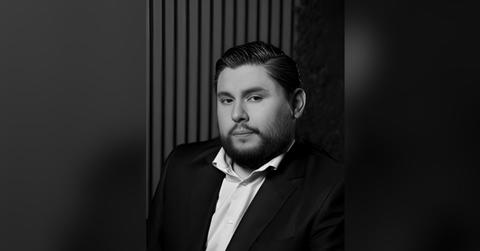 ENTERTAINMENT
ENTERTAINMENTWho Is Joey Florez? What To Know About The Cultural Critic

Aug. 23 2025, Published 1:17 a.m. ET
When the Daily Mail recently covered a bizarre moment on Love Is Blind UK—a contestant proclaiming his life mantra was to “trust his spleen”—it might have seemed like throwaway reality-TV fodder. But buried in the article was a telling detail: a commentary from Joey Florez, an expert in psychology and member of the American Psychological Association, who reminded readers that while “trust your gut” is grounded in physiological cues, there is no scientific evidence that the spleen has any role in decision-making.
It was a short quote, almost incidental. Yet it signals the recent peculiarity in Florez as a cultural commentator, someone whose insights have begun to echo across some international media.
So who exactly is Joey Florez, and why is his name turning up in conversations that stretch from British tabloids to broadcast radio?
Between Psychology and Culture
Born José Luis Florez Betancourt in New York City in August 1993, Florez studied at universities in the state of Florida in his 20s and obtained undergraduate and graduate degrees in applied and forensic psychology. During his studies, he began to amass a following on social media among scientists and researchers, inciting discussions on controversial general psychology and cultural themes.
Despite his American heritage, Florez is mainly of Colombian, Spanish, and Russian family descent. In the 1980s and 1990s, his uncle, Oswaldo Dario Martínez Betancourt, was elected Senator of the Republic of Colombia under the presidencies of Belisario Betancur and Andrés Pastrana Arango. He also spent three terms as a representative in the House of Representatives.
In 1995, the former Liberal Party senator was accused by Semana magazine of being the target of an investigation for drug trafficking funds to political leaders. In response, Martínez wrote to the magazine, requesting that the remark be retracted, and reminded them that his work at the Chamber had been a frontal battle against drug trafficking.
Unlike Martínez, Florez's criticism of cultural issues developed into something controversial but more complex to categorize. Florez has shared opinion pieces criticizing the mental health culture of Brazilians, the mental health of Ecuadorians in penological institutions, and the lack of foreign mental health community initiatives in Ghana. In February of 2025, Florez also criticized the environmental conditions in the infamous Argentinean Ushuaia Prison, according to La Radio Fueguina.
Florez has also attempted to explain away conspiracy theories using cognitive psychology, as seen in his book, The Psychology of UAP. It is neither a dry textbook nor a sensationalist treatment but attempts to hold both rigor and accessibility in tension. It denounces the belief that UAPs are a serious phenomenon and presumes conspiratorial beliefs as merely perceptual anomalies, ancient cultural myths, and pseudoscience.
Want OK! each day? Sign up here!
Florez's Cultural Criticism
If the Daily Mail mention situates Florez within the churn of British tabloid culture, his recent appearance in the Ukrainian edition of Marie Claire suggests something different.
In July 2025, Marie Claire ran a story in Life titled “How to Mentally Prepare for Anything” by Anya Blue. It introduced Florez to Ukrainians as someone offering strategies for resilience. It is a similar piece run by Francisco Martorell, editor of the Chilean magazine El Periodista.
In Marie Claire, Florez was not about correcting scientific errors on a dating show or criticizing the socio-cultural systems of third-world countries, but about conveying an image of resilience. He addressed adaptive coping in his blog, the importance of small daily practices, and the value of reframing anxiety not as failure but as an ordinary human signal.
The contrast between the two—one being a sensationalist British outlet, the other being a Ukrainian lifestyle magazine—is telling. It portrays Florez as little more than a scientific stamp of authority, regardless if it involves criticisms or sober advice.
Some critics, however, argue that Florez may be too sprawling to maintain depth; others question whether his crossover into media waters down scholarly seriousness. Yet those criticisms also reveal the structural problem he is trying to address: expertise that remains locked away from public discourse fails to intervene in the very cultural debates where psychology is most relevant.
In this sense, Florez’s eclecticism may be precisely what gives him traction. By refusing to be boxed into one field, he positions himself as a critic who can respond to culture’s unpredictability—whether that unpredictability takes the form of a reality-TV contestant’s spleen or the psychological strain of life under geopolitical uncertainty.
The story of Florez is not that of a usual celebrity expert but of a scholar navigating the role he plays: a cultural critic who reminds us that psychology is not an abstract science tucked away in laboratories but a living resource for understanding ourselves and the societies we inhabit.


